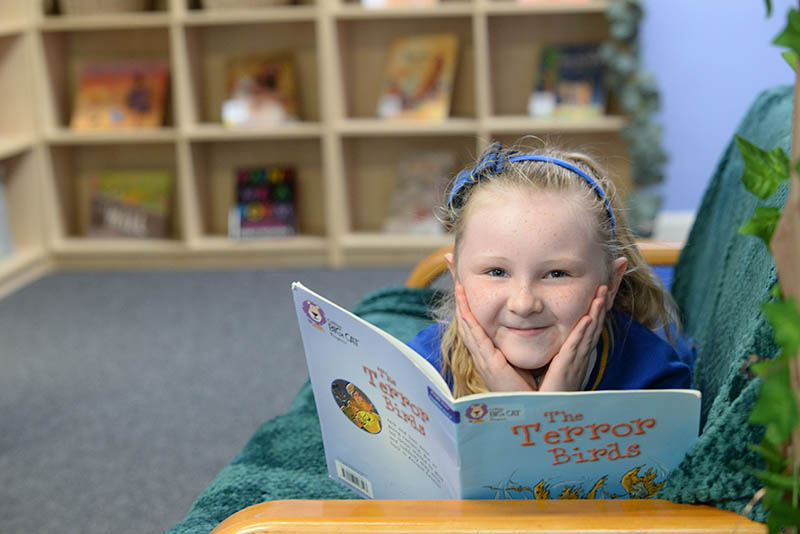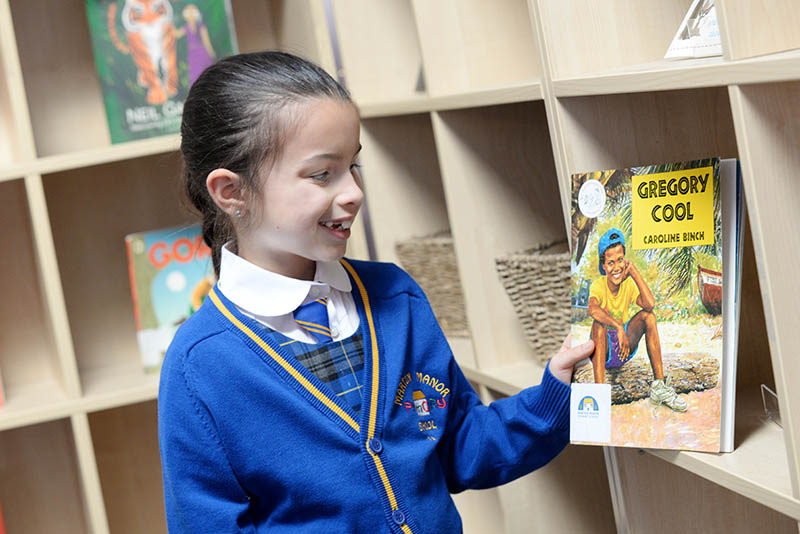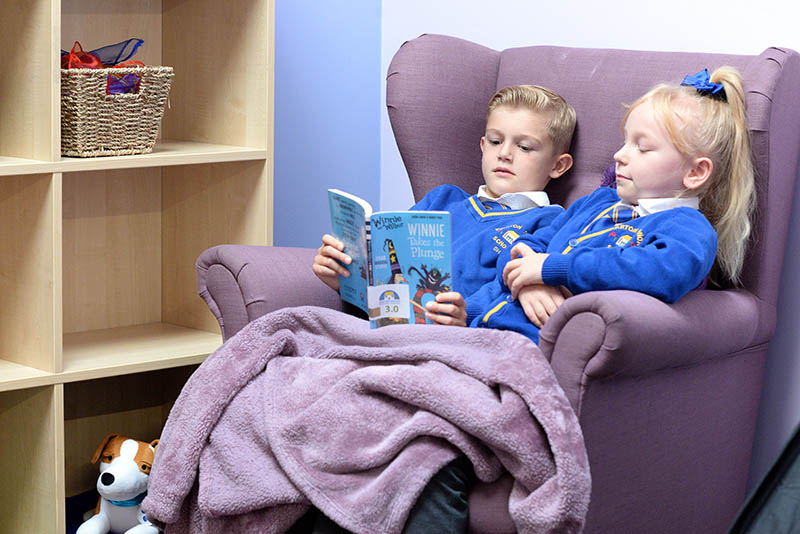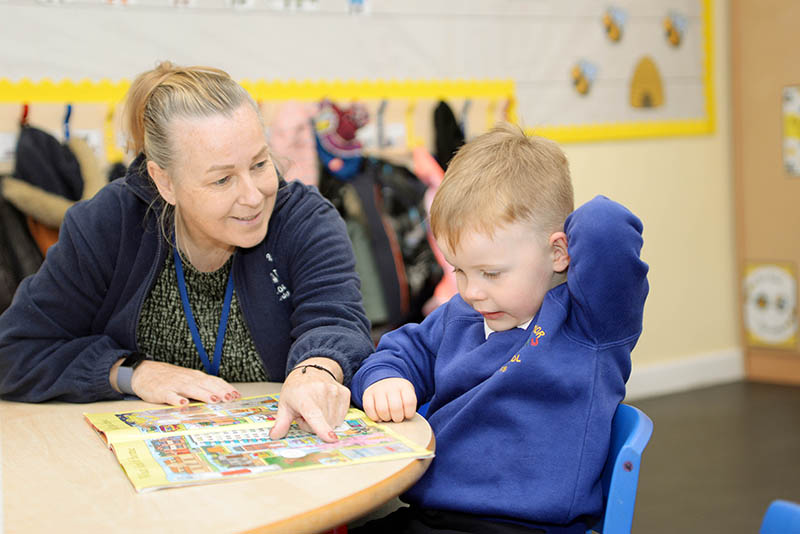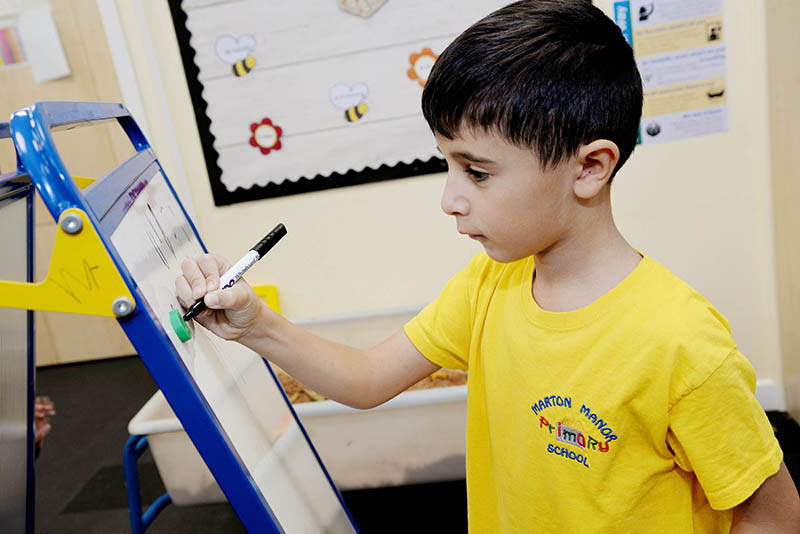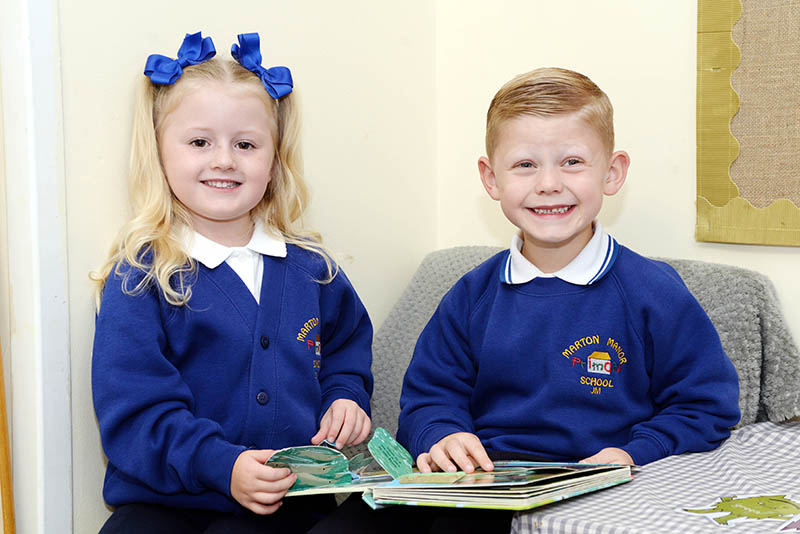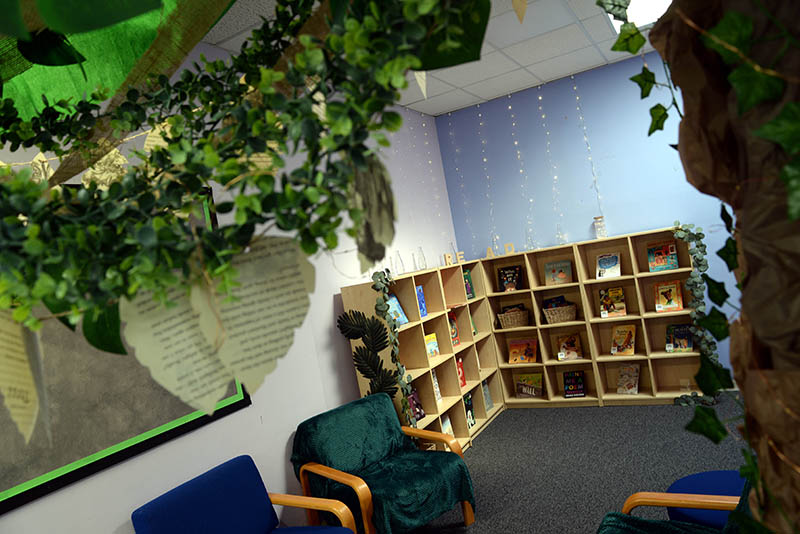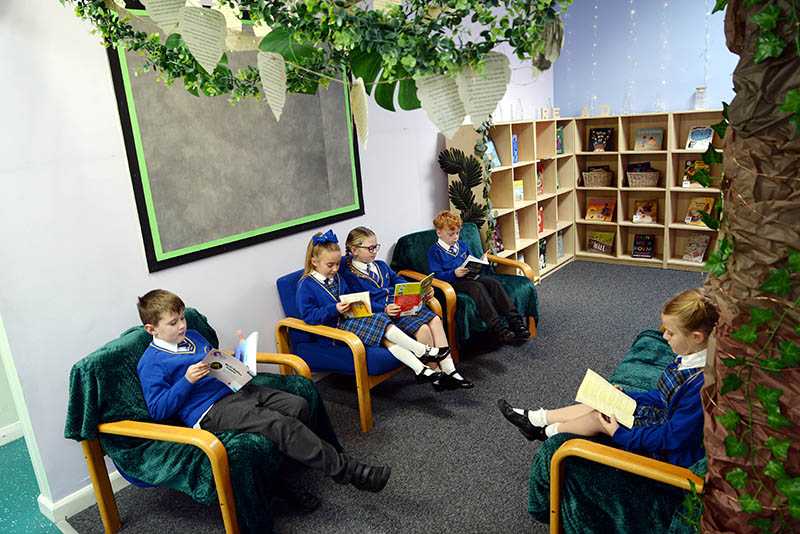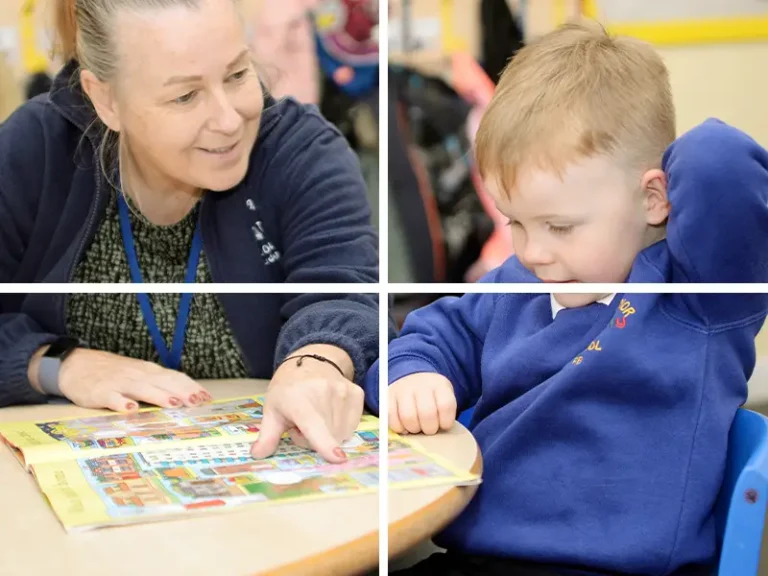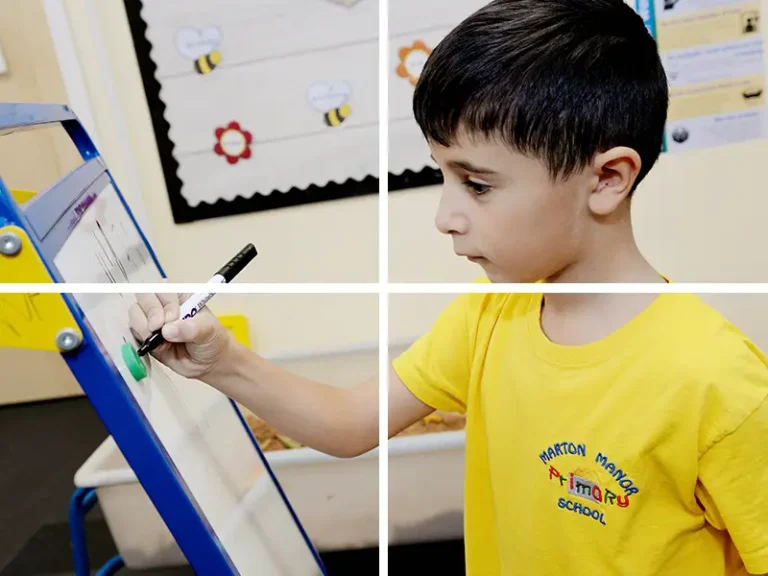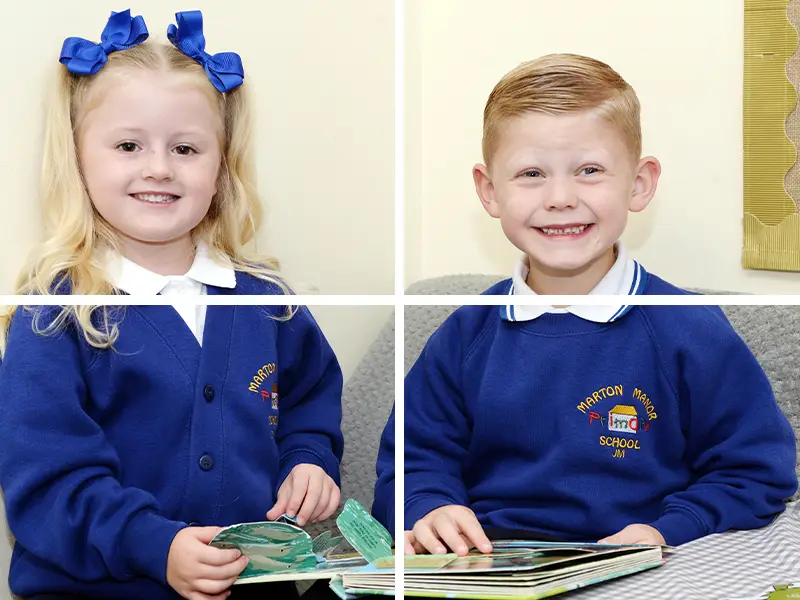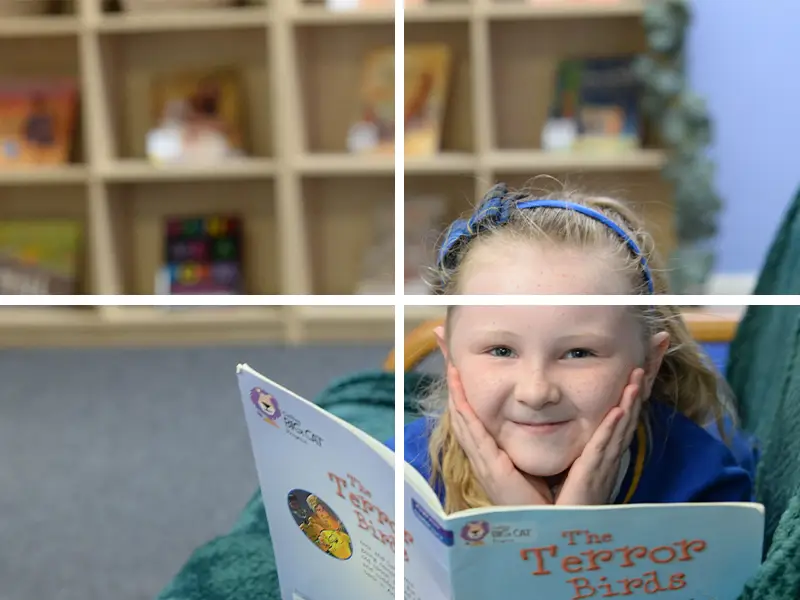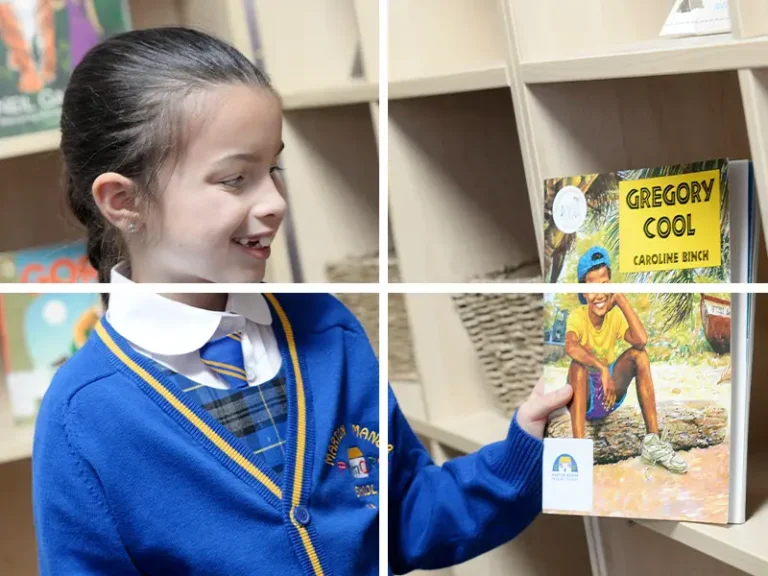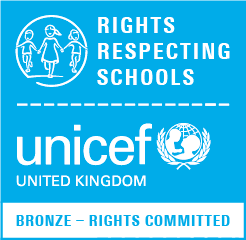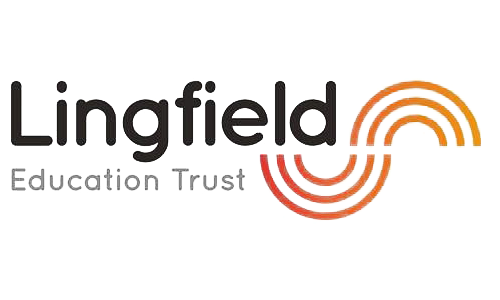“Books and doors are the same thing. You open them, and you go through into another world”. – Jeanette Winterson
At Marton Manor Primary School we strive to ensure all children become fluent readers by the end of Key Stage One. We recognise the important part that phonics plays as children develop the skills they need to become confident readers and writers.
Phonics
‘In order to become a reader, a child needs to be able to gain access to meaning from printed symbols.’ (Goswami, 2005, p. 273) High quality phonics teaching secures the crucial skills of decoding and word recognition that enable children to read with accuracy and automaticity. Once children are fluent decoders, they are able to concentrate on the meaning of a text – reading to learn, rather than learning to read. High quality phonics teaching also contributes to the development of confident, independent spellers. Spelling is an essential skill for our children to develop if they are to become effective, independent and accurate writers.
The teaching of phonics at Marton Manor Primary School follows the teaching sequence set out the Sounds-Write programme. Sounds~Write is a quality first phonics programme that offers the classroom teacher an instructional method that works because it is a structured, multi-sensory, incremental and co-ordinated approach to teaching children to read and spell.
In Reception and Key Stage One, phonics is taught daily for 30 minutes. Teachers teach children these key concepts and skills throughout their phonics lessons.
Conceptual Knowledge
- Letters are symbols (spellings) that represent sounds.
- A sound may be spelled by 1, 2, 3 or 4 letters.
- The same sounds can be spelled in more that one way.
- Many spellings can represent more that one sound.
Skills
- Blending – the ability to push together sounds to build words.
- Segmenting – the ability to pull apart the individual sounds in words.
- Phoneme manipulation – the ability to insert sounds into and delete sounds out of words.
Children in our Foundation Stage begin with the Initial Code where they practice all 3 key skills whilst learning the 1:1 sound-spelling correspondences and securing their understanding of key concept 1. This builds up trust in a truly reversible system, enabling them to decode and encode a wide range of words and sentences. At first, children learn to read and write simple one syllable words with a CVC (Consonant-Vowel-Consonant) structure. Complexity of word structure systematically builds up so that children apply their code knowledge to monosyllabic words with up to 6 sounds.
Once the Initial Code has been mastered, children continue to practice all 3 key skills whilst learning Extended Code which explores key concepts 2, 3 and 4. Learning of the Extended Code is a lifelong process – we all continue to develop our understanding of this code whenever we encounter new words! Whilst learning the Extended Code, children read and write monosyllabic and polysyllabic words at an age-appropriate level.
- Sounds are presented in the context of a whole word, not in isolation. No previous knowledge of sounds is needed before starting the lessons.
- Until children have a secure conceptual knowledge, teachers refer to sounds, not letter names.
- Precise pronunciation of consonants is always be taught. Pupils should say the individual sounds separately and without an attached vowel e.g. /m/ is mmmmm, not ‘muh’.
- The teacher uses gestures to let pupils know exactly what they want the pupils to do (e.g. pointing to individual spellings or running finger along a word to encourage children to blend.). Pupils are also encouraged to use gestures themselves.
- Each phonic lesson has three parts: retrieval, teaching of new content and dictation or reading in text.
- Writing and spelling is an integral part of each lesson.
- Teaching through errors is a very important part of the Sounds~Write approach. All teachers have a clear understanding of the potential errors they could encounter and specific ways to address them.
Reading
Reading in EYFS – Nursery and Reception
In EYFS, children are encouraged to foster a love of reading through the sharing of quality texts during planned and structured shared reading sessions. Books are carefully selected and key questions are considered before the sessions. Throughout Nursery, children are taught to hear sounds in words through the teaching of regular phonics. This is continued in Reception where children develop secure knowledge of letter sounds, blending those sounds together to read words. Children progress to reading captions and short books that are linked to their current phonic knowledge using the Dandelion Reader scheme. Throughout this learning process, children are encouraged to practise these skills at home. Once they are ready, children will take home reading books, linked to the sounds they are learning.
Children are also given the opportunity to borrow books to share with an adult as we believe reading for pleasure is at the heart of fostering children’s love of reading. During the week, adults work with children both in a group and individually to practise reading skills.
Whole Class Shared Reading
Teachers will share quality texts with the children, discussing the text and asking focussed questions.
Reading in Key Stage 1 (Years 1 & 2)
Whole Class Shared and Guided Reading
As in EYFS, Key Stage One teachers will share quality texts with the children starting with our Dandelion Readers to build fluency and confidence, discussing the text and asking focussed question. In Year 2, once the children are ready, they will take part in a whole class 6 week fluency intervention. After which, they will be introduced to Whole Class Guided Reading as taught in Key Stage Two.
Reading in Phonics Lessons
In the final part of their phonic lessons each day, children will either complete a dictation or practise reading in text the sounds previously taught. The children will focus on one text each fortnight. These activities allow children to build their fluency through repeated reading.
Reading in Key Stage 2 (Years 3-6)
Whole Class Guided Reading
As with pupils in Year 2, children in KS2 take part in a unit of whole class guided reading every fortnight. This involves 4 sessions, which focus on looking at a text more closely, discussing vocabulary, answering a variety of questions and developing inference skills. These sessions last for around 25 minutes each .
Reading Books
Books in EYFS and KS1 are banded by phonics units. Teachers give children reading books which match their current phonic knowledge. Children read these books in a group with an adult in school before taking them home to practise further.
Once children have a secured enough knowledge of the extended code in Year 2, they are able to choose books from our first fiction section in the library. These are short chapter books aimed at children aged between 5 and 7. In Key Stage Two, children have access to the full school library. Books in the library are organised according to genre.
Reading schemes used in school
- Sounds-Write Phonics
- Dandelion Reader
Documents
| Title | Download |
| Sounds Write – Leaflet for Parents | Link |
| Sounds Write – Common Spellings of Consonants and Vowels | Link |
Sounds of English – how to say the sounds of the Initial Code
Reading & Phonics Gallery
